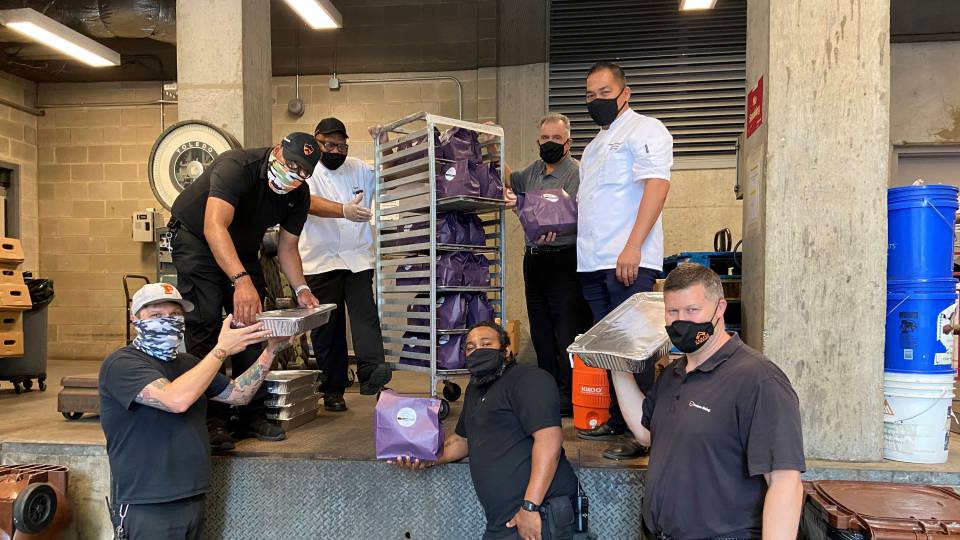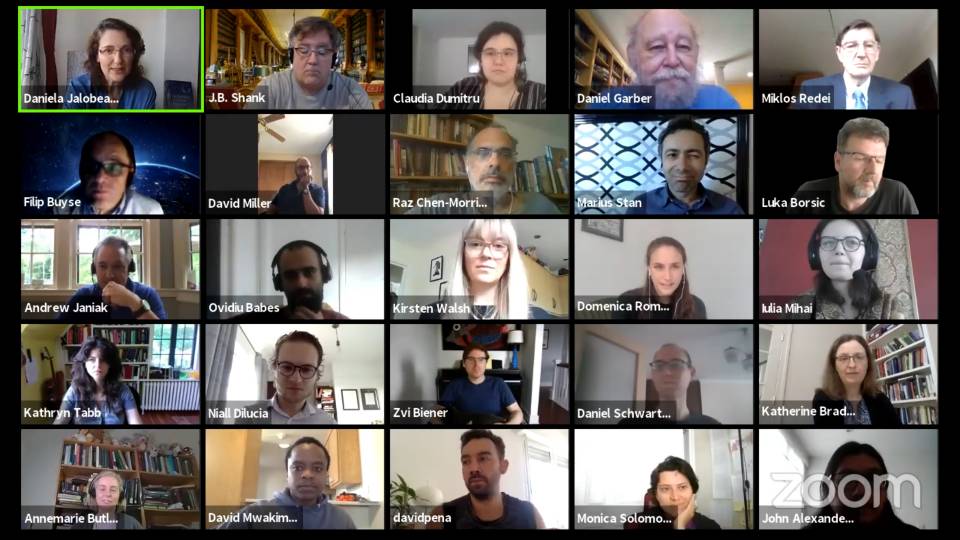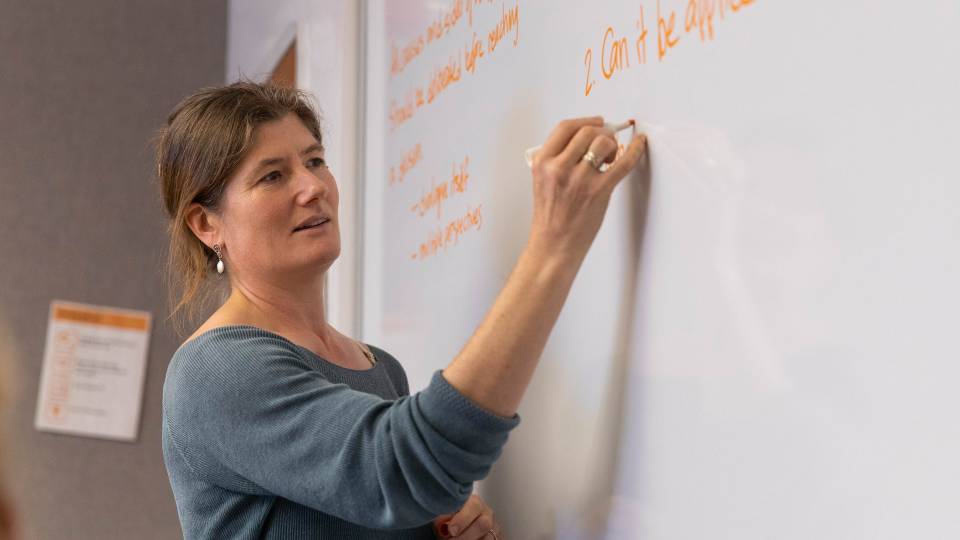The University’s initial $250,000 contribution and $100,000 challenge pledge to the Princeton Small Business Resiliency Fund helped raise more than $450,000 in grant funds to help small businesses impacted by the pandemic. A new round of applications will reopen November 1. Pictured: In June, traffic on Witherspoon Street in Princeton was modified for one-way traffic to accommodate more space for outdoor dining and curbside pick-up.
The University’s initial $250,000 contribution and $100,000 challenge pledge to the Princeton Small Business Resiliency Fund helped raise more than $450,000 in grant funds; new round of applications to reopen November 1.
In April, Princeton University established the Princeton University Relief Fund (PURF), committing an initial $1 million commitment to provide direct support to community organizations in the greater Princeton area that are working to alleviate economic distress related to COVID-19, and small businesses in the Municipality of Princeton impacted by the pandemic.
To support small businesses, the University made an initial contribution of $250,000 to the Princeton Small Business Resiliency Fund (PSBRF) in June. This relief program, formally launched with the University’s contribution, was devised through the leadership of Mayor of Princeton Liz Lampert and Council Member Michelle Pirone Lambros in coordination with the Princeton Mercer Regional Chamber of Commerce Foundation.
In addition to the University’s initial contribution to PSBRF of $250,000, it provided a dollar-for-dollar match of up to the next $100,000 in additional contributions to the fund.
As of October 22, PSBRF surpassed its fundraising goal to match the University’s challenge pledge, for a total of more than $450,000.
After the first round of grants were distributed in September — which provided $5,000 grants to 70 local businesses — there is approximately $100,000 remaining to distribute. In the second round of funding, the criteria for eligibility has been changed to invite a broader selection of Princeton businesses to apply. PSBRF’s grant process will reopen for a rolling application process starting November 1. The complete list of eligibility requirements and information on how to apply are available online.
The PSBRF grants provide assistance with the costs associated with reopening and adjusting to the current guidelines required to conduct business and can be applied to expenses such as cleaning and sanitation supplies, technology and connectivity needs, retrofitting spaces for social distancing, marketing and communications and more.
Individuals interested in supporting local businesses in Princeton may contribute to PSBRF by mailing a contribution to the fund: c/o Princeton Mercer Chamber of Commerce Foundation, 600 Alexander Road, Suite 3-2, Princeton, NJ 08540.
A committee of Chamber Foundation members and community leaders are facilitating the grant application process. The foundation has engaged Union County Economic Development Corporation (UCEDC) to assist the committee in the evaluation and review of grant applications.
The first phase of Princeton University Relief Fund disbursements — a $500,000 commitment — focused on support for community organizations actively engaged in addressing food and housing insecurity, reduced and lost income, child care, and behavioral and mental health needs. These disbursements included:
- $400,000 to the Princeton Area Community Foundation COVID Relief Fund, which was established to provide support to community organizations actively engaged in addressing issues elevated during the crisis including food and housing insecurity, reduced and lost income, child care and behavioral and mental health needs.
- $100,000 to the Princeton Children’s Fund Coronavirus Emergency Relief Fund, which provides financial support to economically disadvantaged local families and individuals in need of assistance with rent, utility bills, child care and medical expenses.
University relief efforts include food-nutrition program, PPE donations, blood drives, volunteer opportunities
The University has been providing relief efforts to the local community in numerous ways since the beginning of the pandemic. These include, but are not limited to:
- Addressing food insecurity. From June to August, the University’s Summer Food and Nutrition Program, an initiative of Campus Dining, the Office of Community and Regional Affairs and the John H. Pace, Jr. ’39 Center for Civic Engagement, coordinated with the Princeton Public Schools and three area nonprofits to provide approximately 43,000 meals a week to at-risk families, children and individuals in surrounding communities. Campus Dining has also donated a range of perishable and nonperishable food items — from liquid eggs to basmati rice and granola — to the Trenton Area Soup Kitchen and Arm in Arm.
- Donation of personal protective equipment. During the pandemic the University has been identifying and delivering personal protection equipment (PPE) — including gloves, masks, respirators, surgical gowns and other items — from labs and other sources on campus to support emergency services in Mercer County, the Municipality of Princeton and West Windsor Township. The University has donated more than 46,000 PPE items including gloves, masks and N95 respirators to support first responder and healthcare worker needs throughout Mercer County.
- Volunteering in the community. Faculty and staff are offering their time as volunteers through the University’s Special Activities and Resources Group (SARG), which matches appropriate volunteers with relevant projects.
- Blood drives. In partnership with the American Red Cross, the University has held a series of community blood drives in April, May, June, July, September and October. More than 400 productive units, which will assist up to 1,200 hospital patients have been donated at these campus blood drives. Appropriate safety and social distancing guidelines were followed.
























